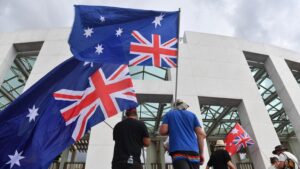
Political polarization is on the rise, fueled by increasing internal unity among certain groups and a growing divide between them. Recent research has provided new insights into how elites influence this phenomenon, revealing the extent of their impact on societal tensions and the challenges in finding common ground.
The study, conducted by leading political scientists, highlights that as polarization deepens, the likelihood of reaching compromises diminishes significantly. This trend has been observed globally, affecting various political systems and communities. The researchers sought to unpack the structural roots of this polarization, focusing particularly on the role of social media as a catalyst.
Measuring Polarization: A New Approach
While previous studies have documented the effects of polarization, this research specifically addresses the mechanisms behind it. The findings indicate that social media platforms amplify the voices of influential elites, thereby shaping public discourse and reinforcing divisions. According to the data collected, approximately 70% of respondents reported feeling more polarized due to content shared by these elites.
The implications are far-reaching. As societal tensions escalate, political discourse becomes increasingly hostile, making it difficult to broker agreements on key issues. The research illustrates that internal unity within political groups can contribute to a more entrenched stance against opposing views. This dynamic not only affects political parties but also has a broader impact on community interactions and social cohesion.
The Role of Elites in Social Media Dynamics
Elites play a critical role in shaping narratives on social media, allowing their perspectives to dominate discussions. The study emphasizes that their influence can skew public perception and limit the diversity of viewpoints available in the digital space. By examining data from various social media platforms, researchers found that the most engaged content often stems from individuals or organizations with substantial followings, which can lead to echo chambers that reinforce existing beliefs.
This phenomenon raises important questions about the responsibility of social media companies in moderating content and promoting diverse viewpoints. With nearly 2.9 billion users worldwide, platforms like Facebook and Twitter have significant power over public discourse and political engagement. The study urges these companies to consider the implications of elite influence and the resulting polarization.
The findings underscore a critical need for awareness regarding the mechanics of polarization. As scholars and policymakers grapple with these issues, understanding the role of elites and social media becomes paramount for fostering healthier political environments.
In conclusion, the research highlights a pressing concern: the ability of elites to shape political polarization through social media. With the stakes higher than ever, addressing these dynamics is essential for ensuring constructive dialogue and effective governance in an increasingly divided world.







